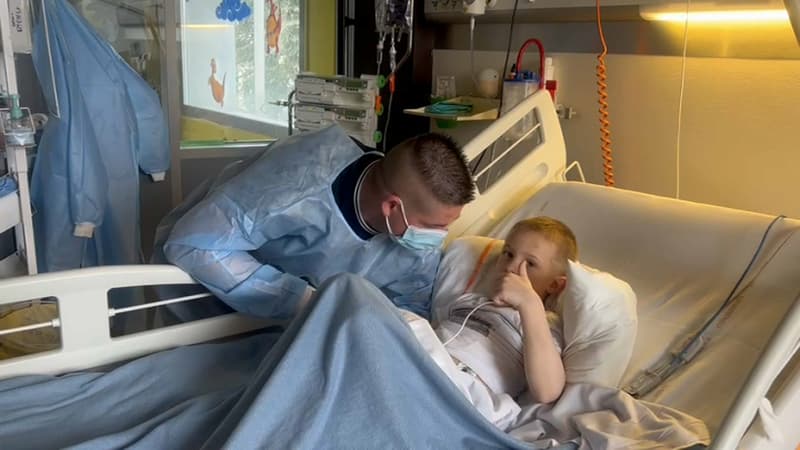If you are healthy and between the ages of 18 and 35, you can save Joris, a five-year-old boy who suffers from aplastic anemia, a rare disease that causes the bone marrow to fail to produce normally. blood cells. Therefore, a bone marrow donation is necessary to help the child who lives in Cours, in the Rhône department.
“At first they tell us about the disease, which is already difficult to bear. Second, they tell us that they are going to test us and her sister to see the accounts, but it is not compatible, ”explains her mother, Charlotte.
“There we question the national and international file. And there is no donor! Joris has quite rare genes and there is no 100% compatible donor”, she adds.
“Without a transplant and without a transfusion, today, Joris will not be able to live”
Therefore, Joris’s mother launched a call for donations to find a compatible donor. “Without a transplant and without a transfusion, today, Joris will not be able to live”, she summed up a few days ago to the microphone of France Bleu.
While waiting for a compatible donor, the little one has already received 11 transfusions. For about forty days, he has undergone strong treatment to curb the disease.
“The ‘little warrior’ is in a sterile room and under pressure so that no microbe can enter it. His parents must wear a blouse, gloves, Charlotte and a mask when they go to see him,” summarizes the local media.
To help her mother and father, both volunteer firefighters, with their daily logistics (hospital trips and accommodation expenses, in particular), a kitty has been created.
How to become a donor?
Bone marrow donations are important for the treatment of very serious diseases such as leukemia or other diseases in both adults and children. In most cases, bone marrow donation is done by drawing blood. The sample may also be taken from bone marrow cells in the pelvic bone.
For become a potential donor, you must be between the ages of 18 and 35 at the time of your registration on the list. However, you can remain registered and make a donation up to age 60.
You should also not be affected by certain health problems, such as a heart condition or lower back problems (the full list is available here). A saliva or blood sample is taken at the end of the recording to identify compatibility with another patient.
Source: BFM TV


